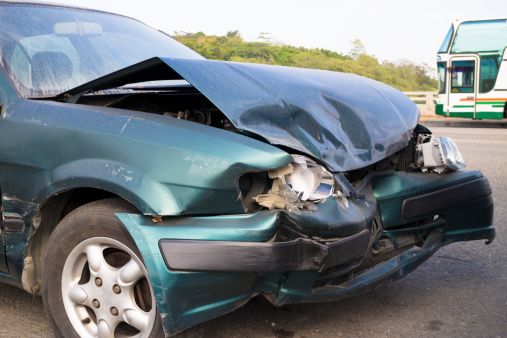Auto accidents affect us all. Even if you are the safest driver in the state, auto accidents involving other people can drive up insurance rates, change speed limits and enforcement approaches. They can also affect the people closest to you.
A new report from the National Highway Traffic Safety Administration (NHTSA) indicates that the overall costs of these accidents have reached alarming levels—edging up to near $900 billion based on 2010 data.
According to the NHTSA report (seen in its entirety here), the economic loss and societal harm from auto accidents in the U.S. comes with a shocking price tag. The $871 billion includes $277 billion in economic costs and $594 in societal harm.
These figures were based on 32,999 auto accident fatalities, 3.9 million non-fatal accident injuries and 24 million damaged vehicles in 2010.
Commenting on the report, Transportation Secretary Anthony Foxx said the costs alone are sufficient reason for investing in safety efforts, not to mention those reasons that a dollar figure cannot be placed on.
Economic Costs vs. Societal Harm
In trying to quantify the full cost of accidents, tallying the vehicle repairs and medical expenses isn’t enough. These economic costs do have a significant impact on accident victims, but there are many other ways in which accident victims “pay.”
Those things that were considered “societal harms” for the purpose of this study included loss of life, pain and suffering and a lower quality of life. For each accident fatality, this cost is estimated at $9.1 million, 85 percent of which is attributed to lost quality-of-life.
Economic costs include:
- $1.4 million per fatality, 90 percent attributable to workplace and household productivity losses
- $76.1 billion total in property damage costs (including automobile damages)
- $34.9 billion for present and future medical costs
- $28 billion in traffic congestion costs, leading to travel delays and increased fuel usage
- $200 billion in societal harms like increased insurance premiums, taxes and environmental impacts.
Drunk Driving, Speeding and Distraction Are Big Contributors
Accidents are caused by a variety of reasons, but just a handful of causes account for the majority of crashes. Findings from the report on specific accident causes provide insight into where road safety efforts should be focused:
- Speeding accounted for 21 percent of all accident-related economic loss, costing $59 billion in 2010. These accidents were also responsible for $210 billion in societal harm, or 24 percent of the total harm to society that year.
- Distractions accounted for 17 percent of economic loss at $46 billion. They were also responsible for 15 percent of the societal harm, or $129 billion.
- Drunk driving cost $49 billion in economic costs, accounting for 18 percent of the total, and $199 billion in societal harm.
Seat Belts Prevent Losses
One contributing factor that saved the country money was seatbelt use. According to the report, seatbelt use prevented $69 billion in injury related costs like medical care and lost productivity. But occupants not wearing their safety belts accounted for $14 billion in economic costs and $72 billion in societal harm.
In all, the overall economic impact of auto accidents in the U.S. is equal to 1.9 percent of the Gross Domestic Product. Of these costs, nearly 75 percent are paid by the people as a whole rather than accident victims, through taxes and congestion related costs.
In other words, accident prevention and road safety doesn’t only affect those who are immediately impacted by a car crash, but they impact us all.
Holding people responsible for accidents they cause can only serve to increase accountability and potentially keep us all a little safer.








